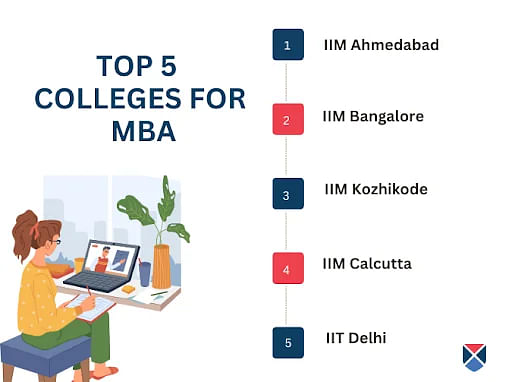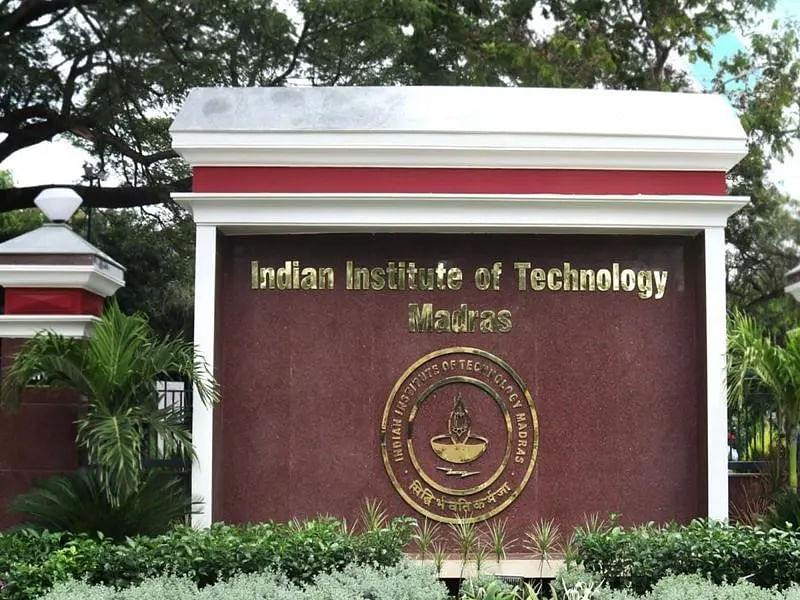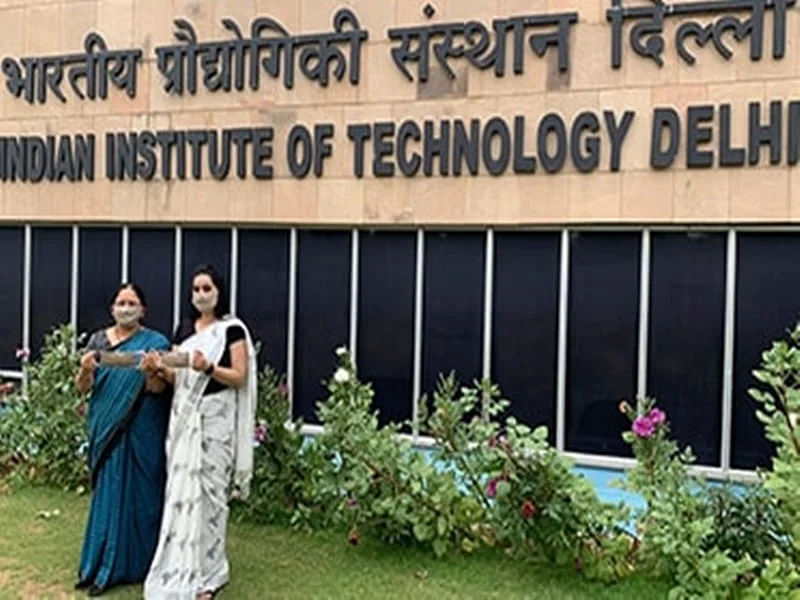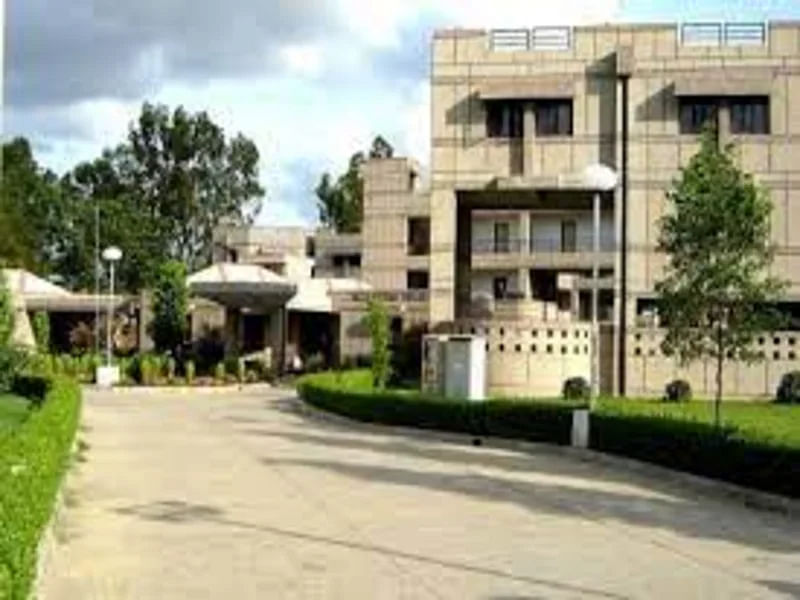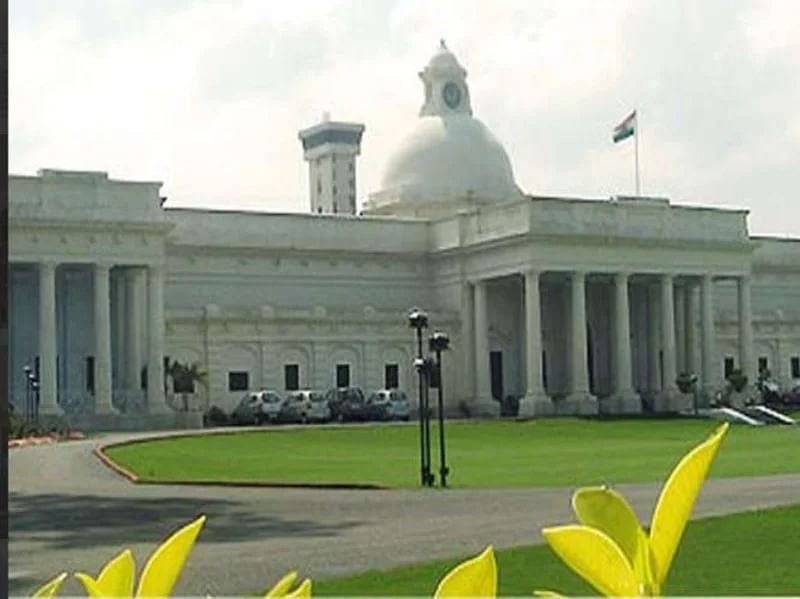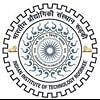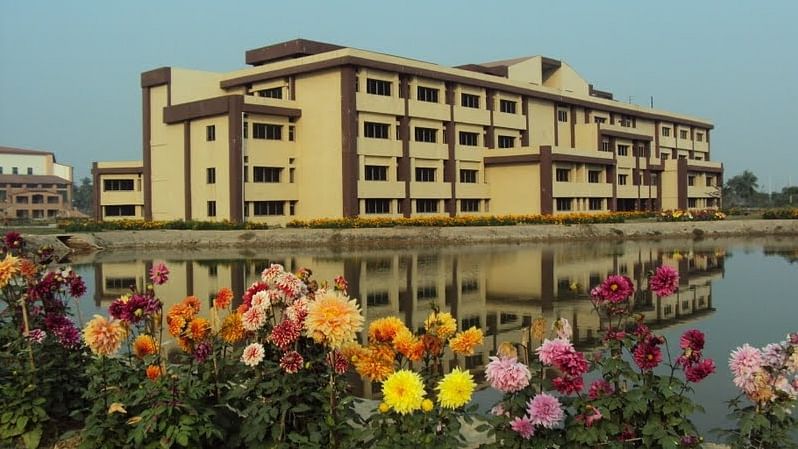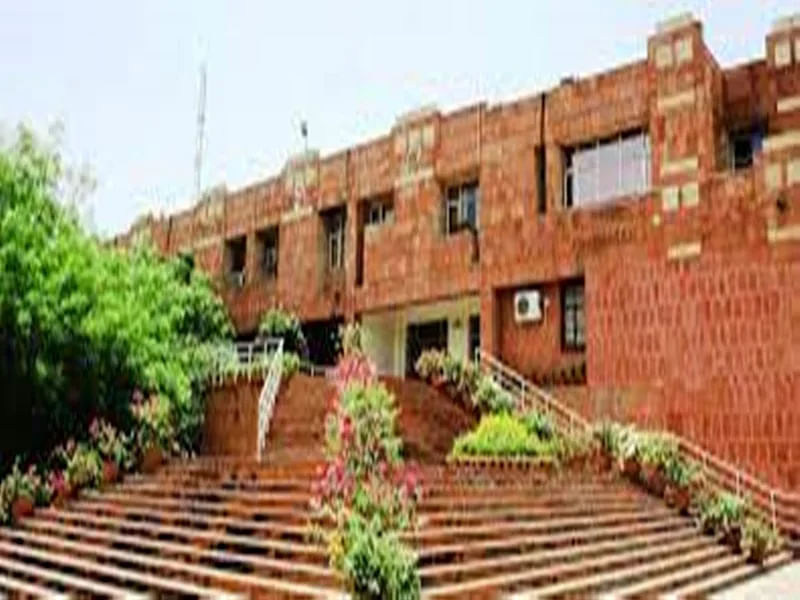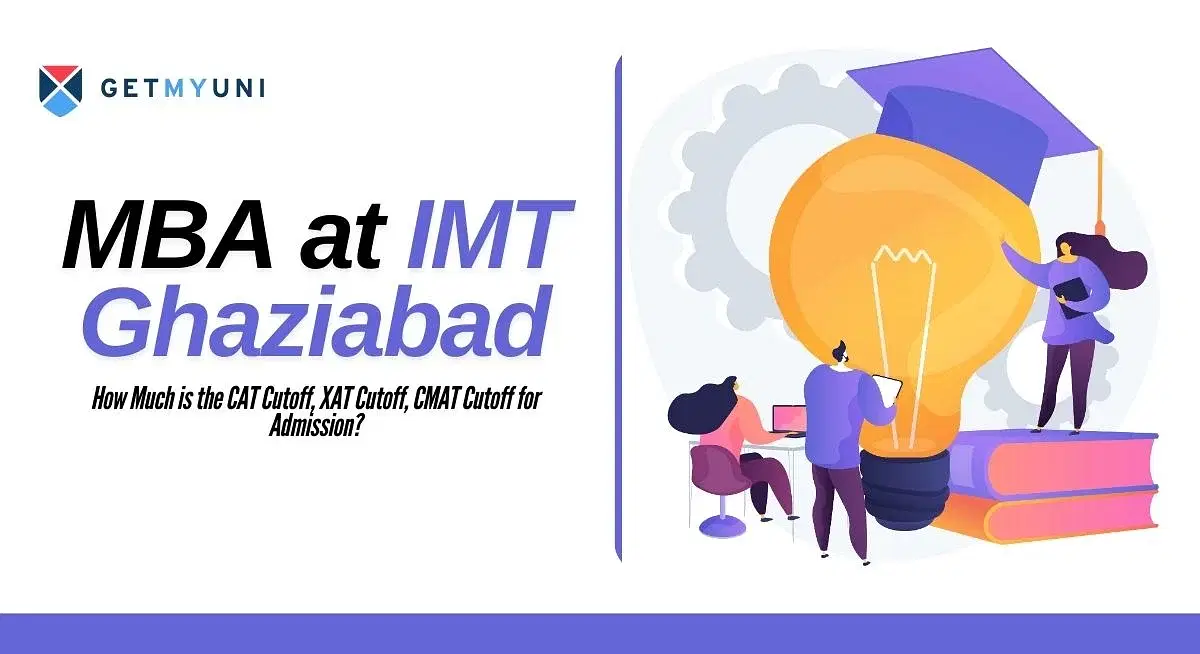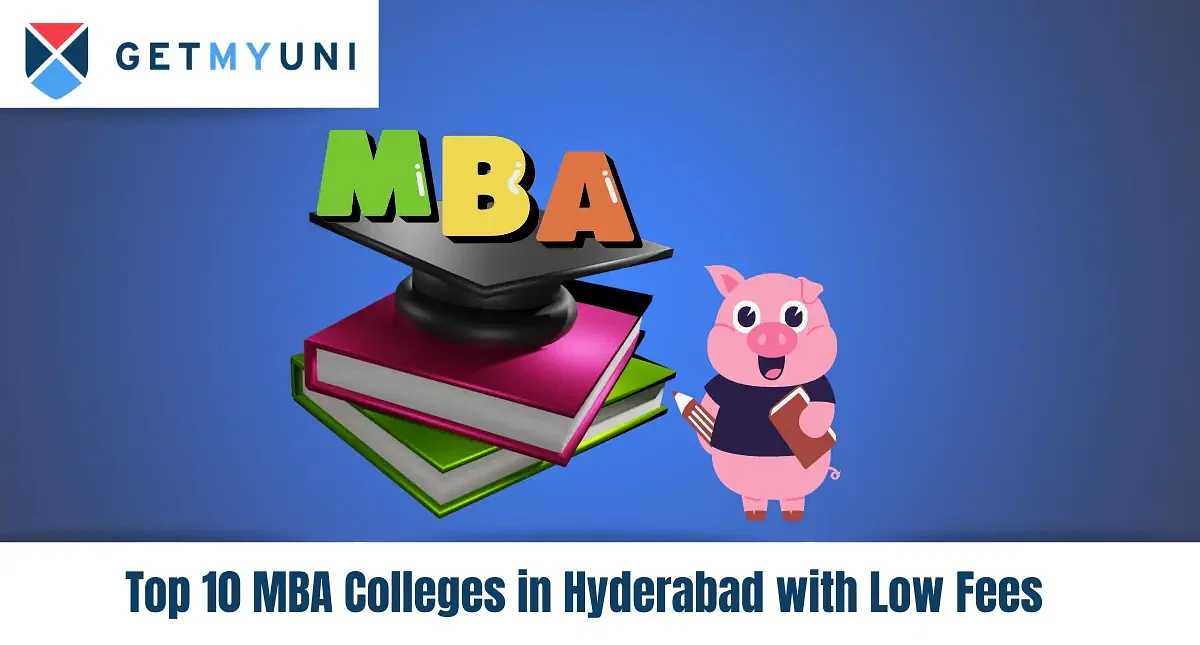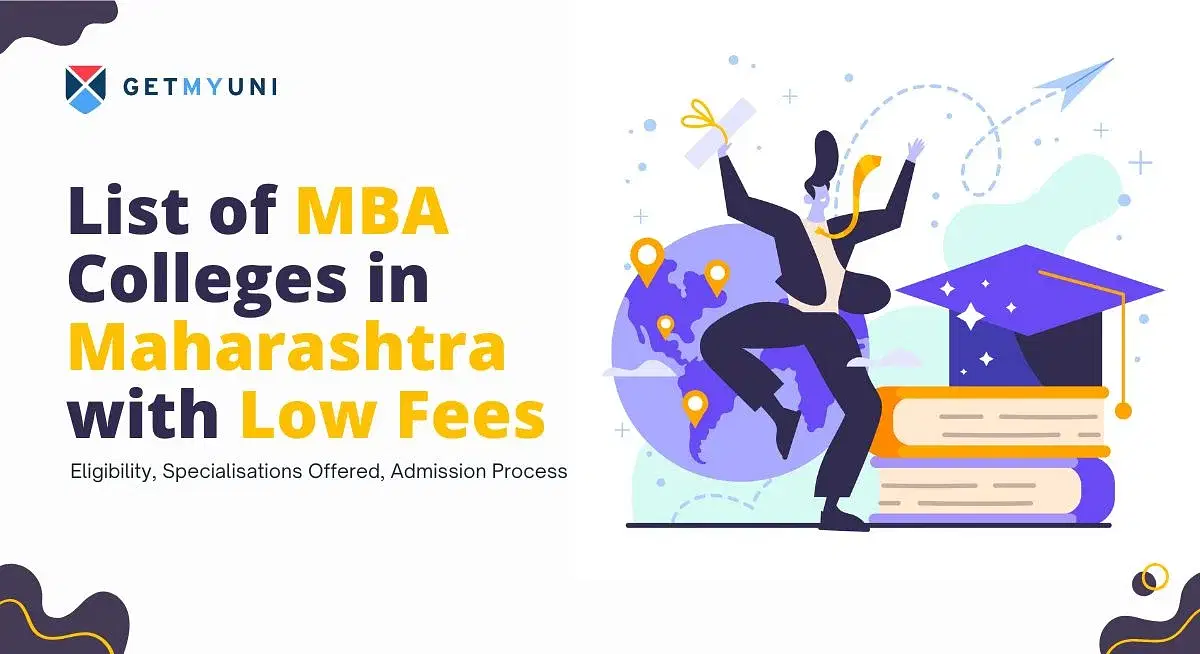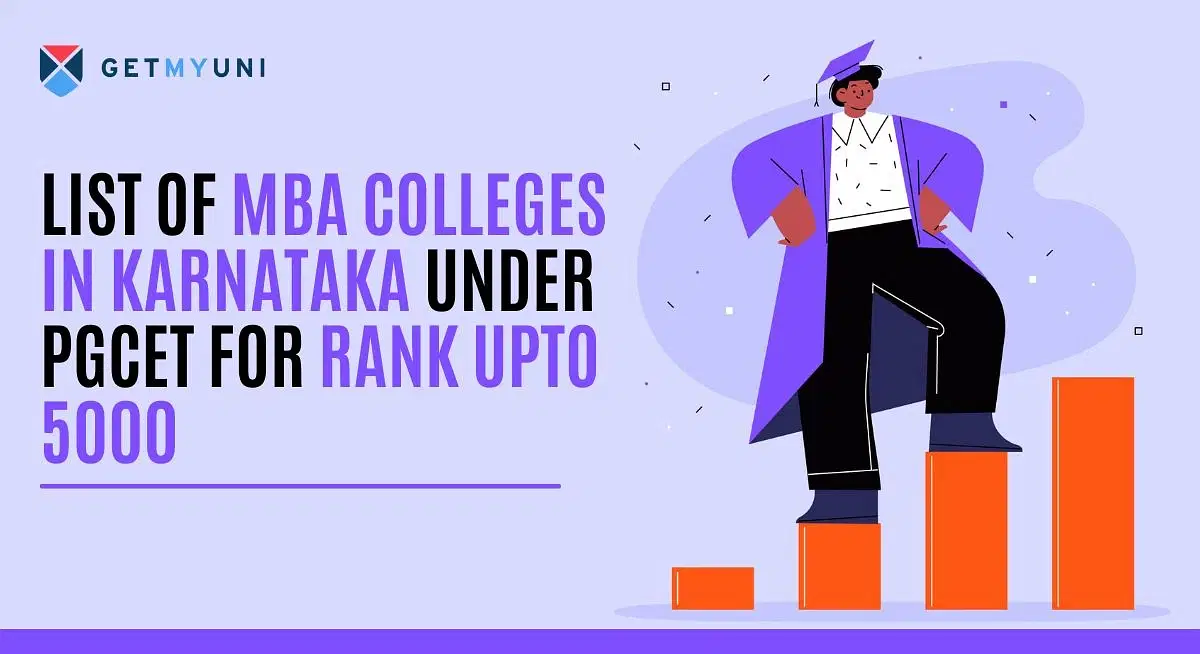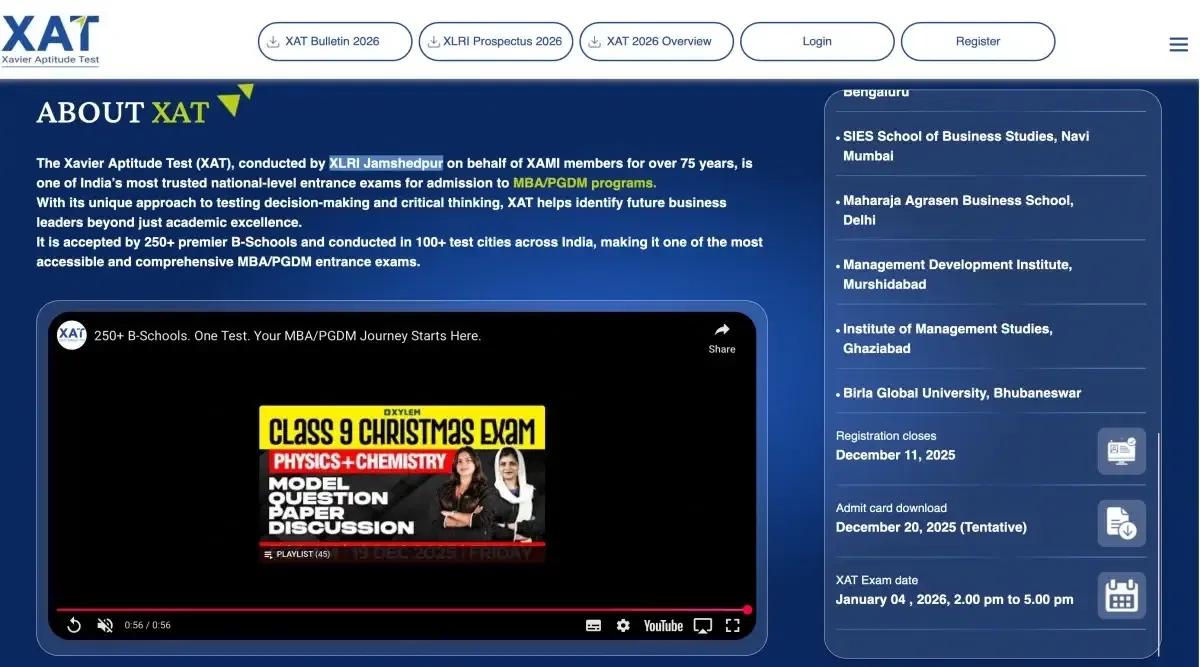MBA: Admission 2026, Full Form, Specialization, Eligbility, Fees, Top Colleges

Master of Business Administration is a highly pursued 2-year PG program that empowers students with the skills required to excel in the business world. IIt nurtures students in business and management skills. The MBA subjects and syllabus 2026 covers a wide range of topics, including Accounting, Finance, Marketing, Operations, Business Strategies, and Leadership.
The real-world projects, internships, short-term projects, and interactive case studies foster critical thinking and effective communication among students to lead their careers with confidence. The MBA Admission 2026 is based on the management entrance exams and personal interviews conducted by the universities.
To be eligible for an MBA program in India, students must have a bachelor's degree with a minimum of 50% aggregate (45% for SC/ST/PwD categories). The MBA fees ranges between INR 3,00,000 - 15,00,000 Per Annum, depending on the type of institution and various other factors.
The MBA job scope is vast and diverse as the salary for the graduates is around INR 4-30 LPA, thereby giving a high return on investment(ROI) to the aspirants. Students can work in top organizations like KPMG, JP Morgan, BCG, Deloitte, Amazon, Google, Flipkart, Proctor & Gamble, etc., which helps the graduate in the development of leadership and managerial skills.
Table of Contents
- What is an MBA Course?
- Why Choose an MBA Course?
- Types of MBA Courses
- MBA Eligibility Criteria
- MBA Admission 2026
- Top MBA Entrance Exams
- MBA Specializations
- Top MBA Colleges in India with Fee Details
- MBA Cutoff 2024
- MBA Syllabus and Subjects 2026
- PGDM vs MBA
- MBA Salary in India
- MBA Placements in Top Colleges in India 2026
- Courses After MBA
- Career Options After Master of Business Administration Course
- Master of Business Administration Scholarships
- Skills to Excel as a Best MBA Graduate
MBA Course Details
| Degree | Masters |
| Full Form | Master of Business Administration |
| Duration | 2 Years |
| Age | No specific age restriction for MBA, but some exams, like ATMA do have a minimum age criteria of 21 years at the time of application. |
| Entrance Exam | CAT, MAT, XAT, CMAT, SNAP, GMAT, IIFT, IBSAT, NMAT, ATMA, TISSNET |
| Minimum Percentage | A minimum of 50% marks in Bachelor's Degree for unreserved category and 45% for SC/ST/PwD categories. |
| Average Fees | ₹3 - 15 LPA |
| Similar Options of Study | PGDM |
| Average Salary | INR 4 - 30 LPA |
| Employment Roles | HR Manager, Marketing Manager, Operations Manager, Financial Analyst, and more |
| Top Recruiters | JP Morgan, BCG, Deloitte, Amazon, Google, Flipkart, Proctor & Gamble, etc. |
What is an MBA Course?
MBA full form stands for Master of Business Administration which is a PG program that encompasses core areas of management studies with a thorough understanding of contemporary concepts about several domains such as finance, marketing, operations, and human resources over two years.
Management courses like MBA focus on imparting various business principles to the students, including marketing, accounting, finance, and economics.
Some of the renowned institutions for this program include IIM Ahmedabad, IIM Bangalore, IIT Delhi, etc. The course offers many different MBA specializations such as marketing, healthcare management, technology management, real estate, and supply chain management, each with its own focus and career opportunities in various range of fields such as healthcare, retail, financial services, etc.
Why Choose an MBA Course?
An MBA course is a wise investment for anyone looking to advance their career and increase their earning potential. Here are the top 5 reasons why MBA is worth it:
Below are the detailed pointers regarding why one should choose an MBA course:
- The MBA course covers core areas such as human resources, economics, finance, technology, etc. which helps expand students' development of strong networking skills.
- An MBA graduate in India can expect to earn an average income of roughly INR 20 LPA, with the maximum compensation reaching INR 70 LPA, according to a report by the Indian School of Business.
- Students with specialized expertise in business project management are high in demand and by 2027 the demand for related skilled professionals is expected to grow at a rate of 33%.
- The graduates can pursue careers in diverse sectors like education, information technology, fashion, digital marketing, and much more.
- Due to government initiatives like Make in India, Digital India, and Startup India, the demand for management experts has increased.
Read More: Why MBA? Top Reasons to Pursue an MBA

Types of MBA Courses
The demand for MBA courses has increased, resulting in the emergence of various modes for pursuing the course depending on students' experience, aim, and qualification. Below are the different types of MBA courses along with their details:
|
Type |
Eligibility for MBA Courses |
MBA Duration |
|
MBA Full Time |
Candidate should have completed bachelor's degree with a minimum of 50-55% marks + Entrance Exam |
2 Years |
|
MBA Part-Time |
Candidate should have completed a bachelor's degree with a minimum of 50-55% marks |
3+ Years |
|
Online MBA |
Students are required to have a bachelor's degree with a minimum of 50% marks |
1-2 Years |
|
Distance MBA |
Candidate should have completed a bachelor's degree with a minimum of 45-50% marks |
2-4 Years |
|
EMBA |
Candidate should have completed a bachelor's degree with a minimum of 50% marks+ Minimum 1 Year of Relevant Experience |
1 Year |
|
One Year MBA |
Candidate should have completed a bachelor's degree with a minimum of 45-50% marks |
1 Year |
|
Integrated MBA |
Should have passed 10+2 (high school degree) with a minimum of 50-55% marks |
5 Years |
1. MBA Part-Time Course
Part-time MBA course duration is usually 3+ years. In this corporate world, part-time MBA courses are very helpful as the candidates can simultaneously earn an MBA degree while continuing their work.
There is no upper age limit to pursue this course. The average salary earned by MBA part-time graduates is around INR 6-25 LPA.
2. Online MBA Course
Students can choose to pursue online MBA courses as it provides an industry-relevant curriculum. The average course duration of an Online MBA is 2-3 years depending on the academic module and the course fees range between INR 50,000- 4 LPA. UPES, Manipal University, DY. Patil Center for Online Learning is known widely for providing excellent course structure and outcomes.
3. Distance MBA Course
Below mentioned are the MBA distance education course details:
- MBA Distance Education is a two-year postgraduate management correspondence program that is most suitable for students who cannot pursue a regular MBA. The duration of a Distance MBA is 2-4 years.
- There is no upper age limit to enrol in the course. A distance MBA course can be pursued from prominent colleges like DUSOL, LPU, UPES, Manipal University, etc., in various specializations.
- IGNOU MBA is AICTE-approved and offers specialization in ten-plus fields.
- The average distance MBA course fee is in the range of INR 20,000 - 60,000 PA.
4. Executive MBA Course
EMBA is vast in India due to its exponential job opportunities. Executive MBA is a one-year course designed for individuals with at least 2 years of work experience. The syllabus of the Executive MBA is equivalent to the 2-year MBA program. ISB Hyderabad, IIM, IMI, and SPJIMR are the top colleges known for E-MBA courses.
Graduates of this course earn around INR 2-8 LPA. Graduates are also eligible to take up PhD in Management which will offer a better scope in the future.
5. One-Year MBA Course
Candidates who have a clear idea about their future can pursue a One-Year MBA program. This course is best fit for professionals who do not want to quit their current jobs, yet earn an MBA degree in a span of just 1 year.
This course also offers several specializations like Finance, Marketing, etc. MBA 1-year course fee ranges between INR 2 Lakh to INR 3 Lakh.
6. Integrated MBA Course
Candidate can pursue Integrated MBA Courses after completing 10+2 (high school degree) in the relevant subject from a recognized board with a minimum of 50% marks. Students have the option of studying the BBA MBA integrated course and it can be pursued at colleges like Doon Business School, Nirma University, IIM Indore, LPU, etc.
This course duration is 5 years and the average integrated MBA course fee is between INR 50,000 - 10 LPA.
MBA Eligibility Criteria
MBA eligibility criteria may differ based on the college requirement but the institutes follow some standard parameters that a candidate needs to fulfill as mentioned below:
- Applicants must have completed their bachelor's degree in any related discipline with a minimum of 50% aggregate from a recognized university for an unreserved category and 45% for reserved category students. Students must also clear the MBA entrance exam for admission such as CAT, XAT, SNAP, etc.
- Applicants who are pursuing the final year of their bachelor's degree are eligible to apply for the course on a provisional basis.
- Some colleges also have a requirement that a candidate should have a minimum of 2 years of work experience.
- There is no official age limit for MBA. However, entrance exams like ATMA require the candidate to be a minimum of 21 years at the time of application.
MBA Admission 2026
Admission to the MBA courses can be done through both online and offline methods. Below listed is the standard step-wise MBA Admission Procedure 2026 followed by colleges and universities:
- Step 1: The candidate must fulfil the minimum MBA eligibility requirements for admission to the course.
- Step 2: The candidate needs to complete the registration process of the respective college available either online or by visiting the college campus.
- Step 3: The students should clear the cut-off for entrance exams accepted by the colleges.
- Step 4: Following the entrance test and the announcement of the results, universities and colleges will announce their cut-offs to begin the admission process.
- Step 5: Once the merit list is published, candidates are called for GD and Interview process.
- Step 6: Upon selection, students need to upload the necessary documents and pay the respective MBA course fees.
Top MBA Entrance Exams
An aspirant's ranking in the entrance exams determines their admission to the top MBA colleges in India. MBA entrance exams are conducted at the national, state, and institute levels. These nationalized exams are approved by the AICTE (All India Council for Technical Education). Some of the popular MBA Entrance Exams 2026 are detailed in the table given below:
| MBA Entrance Exams | Examination Date | Accepting Colleges |
| CAT | Nov 30, 2025 | All IIMs, IIT Madras IIT Delhi, ISB, FMS Delhi, SP Jain Institute of Management, IMT Ghaziabad, IMI New Delhi and more |
| MAT | Dec 13 and 21, 2025 | BIMTECH, DSB Delhi, IMS Ghaziabad, IPE Hyderabad, Amrita School of Business Coimbatore and more |
| XAT | Jan 4, 2026 | XLRI, MICA, XIM Bhubaneswar, IMI New Delhi, Great Lakes Chennai, IMT, TAPMI and more |
| NMAT | Nov 5- Dec 20, 2025 | SPJIMR, TAPMI, IBS Hyderabad, VIT University, K J Somaiya Institute of Management and more |
| CMAT | May 2026 | Great Lakes Institute of Management, Amity University, Lovely Professional University, Goa Institute of Management, KIIT and more |
| GMAT | Not Scheduled | IIMs, ISB, XLRI, SPJIMR, Great Lakes Institute of Management, IIFT, JBIMS and more |
| TS ICET | June 2026 | MC Gupta School of Business Management, AMS School of Informatics for Women, Dhanvantari Institute of Management Sciences, Kakatiya Institute of Management Studies and more |
| MAH CET | Mar 2026 | JBIMS, SIMSREE, SIES College of Management Studies, XIMR Mumbai, DYPIMR and more |
| AP ICET | May 2026 | IFMR Graduate Business School, KL Business School, GITAM School of Business, Acharya Nagarjuna University and more |
| KMAT | March 2026 | Jain University, AIMS Institute, ISBR Business School, Alliance University, RVIM, Srinivas University and more |
| TANCET | March 2026 | PSGCT, VICAS, University of Madras, Anna University, SSN School of Management, SRM University and more |
MBA Specializations
Graduates can pursue a Master of Business Administration degree in various specializations according to their professional expertise and future goals. MBA course has over 30 different specializations with Marketing, Human Resources, Finance, and IT being some of the commonly preferred fields.
Most colleges allow students to opt for one particular area as their specialization, while few colleges allow dual specialisation in MBA.
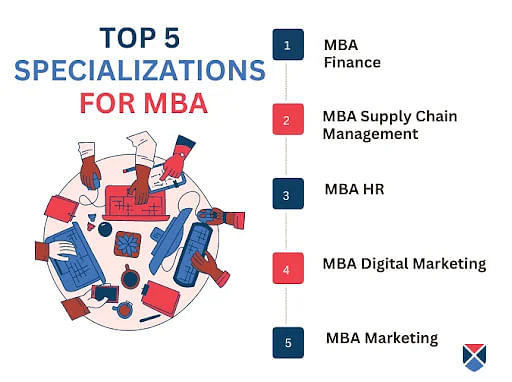
Tabulated below are the top 10 specializations in MBA courses.
|
Top 10 MBA Specialisations |
|
Top MBA Colleges in India with Fee Details
MBA course fees in most IIMs (Tier 1 Colleges) range between INR 20 - 40 LPA. Whereas, the fee structure in Tier 2 and 3 colleges lies between INR 2 - 20 LPA.
Top IIMs for MBA Based on NIRF Ranking
The management courses provided at IIM are PGP, equivalent to MBA, PGDM, and Executive MBA. The table below lists the top IIM colleges in India along with the average IIM MBA fees:
|
NIRF Management Rankings 2025 |
College Name |
Average Fees |
|
1 |
INR 15.75 LPA |
|
|
2 |
INR 11.25 LPA |
|
|
3 |
INR 11.25 LPA |
|
|
5 |
INR 7 LPA |
|
|
7 |
INR 13.5 LPA |
|
|
8 |
INR 12.47 LPA |
|
|
15 |
INR 7.96 LPA |
|
|
16 |
INR 8.25 LPA |
|
|
18 |
INR 7.50 LPA |
|
|
19 |
INR 10.50 LPA |
|
|
21 |
INR 3.64 LPA |
|
|
23 |
INR 6 LPA |
|
| 25 |
INR 9.45 LPA |
|
|
29 |
INR 9.1 LPA |
|
|
35 |
INR 8.57 LPA |
|
| 38 |
INR 7.30 LPA |
Top IIT MBA Colleges Based on NIRF Ranking
IITs offer one of the best MBA programs in India. The table below lists the top IIT MBA colleges along with the IIT MBA Fees in India:
|
NIRF Management Ranking 2025 |
College Name |
Average Fees |
|
4 |
INR 5.60 LPA |
|
|
12 |
INR 5.23 LPA |
|
|
13 |
INR 3.49 LPA |
|
|
14 |
INR 6.96 LPA |
|
|
22 |
INR 4 LPA |
|
|
27 |
INR 2.54 LPA |
Top MBA Colleges Other than IIMs & IITs
Listed below are the detailed MBA Fees in India for top colleges bifurcated into tuition, admission, and miscellaneous fees:
| NIRF Management Ranking 2025 | College Name | MBA Tuition Fees | Admission Fees | Miscellaneous Fees |
| NA | PDM University | INR 60,500 PA | INR 4,200 | INR 22,000 PA |
| 11 | SIBM Pune | INR 11 LPA | INR 20,000 | INR 2.02 LPA |
| 17 | IIFT |
INR 10.50 LPA |
INR 10,000 |
- |
| 24 | NMIMS Mumbai | INR 10.95 LPA | - | INR 2.50 LPA |
| 07 (Overall) | BITS Pilani | INR 4.90 LPA | INR 53,900 | - |
| NA | Mudra Institute of Communications | INR 10 LPA | - | INR 1.15 LPA |
| 45 | UPES | INR 5.64 LPA | INR 40,000 | - |
| 101+ | Nirma University | INR 9.52 LPA | - | INR 65,000-80,000 PA |
| NA | KIIT School of Management | INR 8.45 LPA | - | INR 2 LPA |
| 62 | Jain University | INR 2.87 LPA | - | INR 1.75 LPA |
| 25 | SIBM Nagpur |
INR 7.75 LPA |
INR 20,000 |
INR 2.91 LPA |
|
NA |
INR 5.66 LPA |
INR 25,000 |
INR 2 LPA |
|
| 101+ | GLA University | INR 2,10,000 PA | INR 5,000 | - |
Top 5 City Wise MBA Colleges in India 2026
Below listed are location-wise MBA colleges in India with the average annual fees:
| Location | Average Annual Fees |
| INR 80,000- INR 4 LPA | |
| INR 50,000- INR 3 LPA | |
| INR 1- INR 8 LPA | |
| INR 70,000- INR 10 LPA | |
| INR 80,000- INR 4.50 LPA |
MBA Cutoff 2024
Admission to the top MBA colleges is based on achieving good cut off marks in the MBA entrance exams such as CAT, MAT, XAT, etc. These cut-off marks are subject to change every year based on the demand and quality of the student's performance. The MBA cut-off marks 2024 of popular MBA entrance exams based on the previous year are given below.
MBA CAT Cutoff 2024
The CAT cutoff varies every year depending on the difficulty of the exam, the number of applications, etc. The exam was conducted on Nov 24, 2024. The CAT cut-off is released by various colleges individually after the CAT exam is conducted across India.
Below is the list of the best MBA colleges in India along with their CAT 2024 cut-off for general category students:
|
College Name |
CAT Cutoff 2024 |
|
IIM Ahmedabad |
95 percentile |
|
IIM Bangalore |
85 percentile |
|
IIM Calcutta |
80 percentile |
|
IIM Lucknow |
90 percentile |
|
IIT Kharagpur |
90 percentile |
|
IIM Kozhikode |
85 percentile |
|
IIM Indore |
90 percentile |
|
IIT Delhi |
90 percentile |
MBA MAT Cutoff 2024
Management Admission Test or MAT is a popular MBA entrance exam in which students can appear for admission to the prevalent MBA colleges across the country. MAT exam takes place around September. The following are the top MBA colleges along with MAT cut-off scores for 2024.
|
College Name |
MAT Cutoff 2024 |
|
Christ Institute of Management |
75 percentile |
|
Amity Business School |
90 percentile |
|
PUMBA |
90 percentile |
|
XIME Bangalore |
95 percentile |
|
Jaipuria Institute of Management |
75 percentile |
|
IFIM Business School |
85 percentile |
|
DSIMS Mumbai |
80 percentile |
MBA Syllabus and Subjects 2026
The MBA Syllabus and Subjects 2026 in the first year develops knowledge about core business concepts related to marketing, strategy, and operations management. The second-year syllabus varies depending on the specialization chosen by students and focuses on advanced knowledge related to the discipline such as corporate finance, market research, supply chain management, etc.
A few of the MBA specializations along with the important modules are given below in a detailed view:
|
MBA Specialisations |
Topics Covered |
|
MBA Marketing |
Consumer Behaviour, Industrial Marketing, Marketing Research, Retail Management, Service Marketing, Brand Management |
|
MBA Finance |
Security Analysis & Portfolio Management, Corporate Taxation, International Accounting, Banking and Insurance, Financial Derivatives, Corporate Financial Reporting |
|
MBA Operations |
Logistics and Supply Chain Management, Production Planning and Control, Enterprise Resource Planning, Production Management, Material Management, Operations Management and Strategy |
|
MBA HR |
Human Resource Development, Industrial Relations Management, Employee Legislation, HR Planning and Development, Human Resource Information System, Compensation Management |
PGDM vs MBA
MBA is a postgraduate degree offered by a university, while PGDM is a postgraduate diploma issued by any private college/university, affiliated to AICTE. The table below contains the differences between MBA Vs PGDM 2026:
|
Parameter |
PGDM |
MBA |
|
Full Form |
Post Graduate Diploma in Management |
Master of Business Administration |
|
Discipline |
Management |
Management |
|
Industry Orientation |
The course strongly emphasizes case studies, real-world applications, and practical skills, making it more industry-oriented. |
The course is a balanced mix of theoretical and practical aspects, where industry relevance can vary. |
|
Duration |
2 years |
2 years |
|
Eligibility |
A minimum of 50% of total marks in UG |
A minimum of 50% of total marks in UG |
|
Average Fees |
INR 3 - 12 LPA |
INR 3- 15 LPA |
|
Top Institutes |
IIMs, IMI, SP Jain |
IIMs, XMRI, FMS |
|
Average Salary |
INR 3-25 LPA |
INR 4-30 LPA |
|
Job Roles |
IT Project Manager, Supply Chain Manager, Retail Marketing Manager, etc. |
Marketing Manager, Finance Manager, HR Manager, Operations Manager, etc. |
MBA Salary in India
The average salary depends on many factors like the company's policy, the capabilities of the individual, the knowledge and expertise of the aspirants, and many more. Some of the best B-schools in India offer placements in top recruiting companies like Amazon, KPMG, Tesla, etc. The average MBA salary range is INR 4 - 30 LPA.
Below is a list of the Tier 1 cities in India having the highest number of MBA graduates or professionals and their average salary:
|
Top Cities in India |
Average MBA Salary |
|
Delhi |
INR 5.2 LPA |
|
Bangalore |
INR 10 LPA |
|
Pune |
INR 8.21 LPA |
|
Gurgaon |
INR 7.50 LPA |
|
Mumbai |
INR 6.95 LPA |
|
Chennai |
INR 6.36 LPA |
MBA Placements in Top Colleges in India 2026
The best MBA colleges in India are listed below as per MHRD-NIRF rankings 2026 along with the average CTC offers made during the latest on-campus MBA Placements 2026:
|
MHRD-NIRF Ranking 2026 |
Top MBA Institute |
MBA Average Salary Packages (INR) |
|
1 |
IIM Ahmedabad |
34.36 LPA |
|
2 |
IIM Bangalore |
33.82 LPA |
|
3 |
IIM Kozhikode |
26.5 LPA |
| 4 |
IIT Delhi - DMS |
24.45 LPA |
|
5 |
IIM Calcutta |
33.67 LPA |
|
6 |
NITIE Mumbai |
25.4 LPA |
|
7 |
IIM Lucknow |
31.03 LPA |
|
8 |
IIM Indore |
30.21 LPA |
|
9 |
XLRI |
29.4 LPA |
|
10 |
SJMSOM IIT Bombay |
25.9 LPA |
|
11 |
MDI Gurgaon |
26.13 LPA |
|
12 |
IIM Rohtak |
18.73 LPA |
|
14 |
IIM Raipur |
21.01 LPA |
|
16 |
IIT Madras |
20.19 LPA |
|
19 |
IIT Kharagpur |
19.36 LPA |
Courses After MBA
After completing the MBA program, aspirants can pursue various higher education and certification courses to improve their domain expertise and knowledge. Below is a list of courses that MBA graduates can pursue:
- CFA
- CMA
- Fellowship Programme in Management
- Ph.D. in Management
- Six Sigma Green Belt Certification Course
- Project Management Professional Certification Course
Career Options After Master of Business Administration Course
With ongoing infrastructural, agricultural, industrial, and other government projects being executed, there are great job opportunities for MBA graduates. Aspirants pursuing an MBA course can take up job roles in various private and public organisations depending on their specialisation such as:
|
Job Designations |
Hiring Companies |
Average Salary |
|
Marketing Manager |
Amazon, Google, IBM, Microsoft, Marriott International |
INR 3 - 20 LPA |
|
HR Manager |
Reliance, Cognizant, Wipro, Amazon, Accenture, TATA |
INR 3 - 18 LPA |
|
Business Development Manager |
Unacademy, Extramarks, Vedantu, Axis Bank, HDFC, Paytm, Flipkart |
INR 2.5 - 15 LPA |
|
Business Consultant |
Capgemini, Accenture, TCS, IBM, Deloitte, Cognizant |
INR 2.2 - 23 LPA |
|
Business Analyst |
Accenture, TCS, Deloitte, Amazon, Dell Technologies |
INR 3 - 15 LPA |
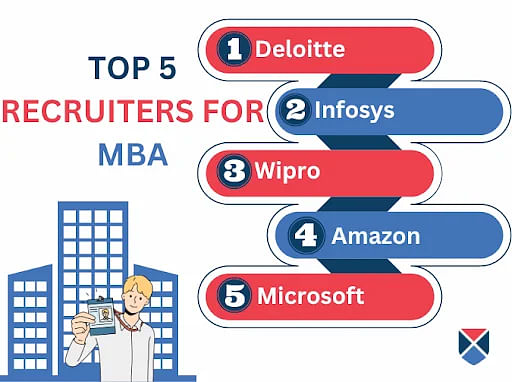
Read More: MBA Job and Scope 2026
Master of Business Administration Scholarships
MBA Scholarships 2026 are very helpful for students seeking a Master's in Business Administration. They offer financial support to students who might struggle to pay for their fees and other costs. Below mentioned are a few scholarships for MBA courses:
|
Scholarship |
Eligibility |
Scholarship Amount |
|
Aditya Birla Group Scholarship |
60% marks in the undergraduate studies |
INR 3 Lakhs |
|
IMT EWS Scholarship |
90 percentile or above in CAT OR XAT |
40% on the course fee |
|
OPJEMS (O. P. Jindal Engineering & Management Scholarships) |
|
INR 1.25 Lakhs |
|
IDFC First Bank MBA Scholarships |
Only for Indian nationals under the age of 35 years |
INR 2 Lakhs |
|
PNB Housing Finance Protsahan Scholarship |
A minimum of 65% marks in the undergraduate studies |
INR 30 Lakhs |
Skills to Excel as a Best MBA Graduate
MBA qualification helps graduates to develop a certain set of skills that are applied in the professional world which helps them in excelling at their jobs. Listed below are the skills that make the graduates professionally sound and knowledgeable:
- General Management Skills: Planning, Controlling, Organising, and Leading are the main 4 principles for graduates to follow in their respective jobs.
- Strategic Thinking: Students should be aware of various long-term and short-term strategies to improve the growth of the business.
- Project Management Skills: The graduates should know how to manage resources, analyse problems, report progress, and analyse project performance
- Data Analysis Skills: Knowledge of system analysis, Process Modeling and Analysis, and Business Intelligence tools is an added advantage for MBA graduates.
- MS Office: Students should know the basics of Microsoft Office, Adobe, Google Docs, and other relevant industry-specific programs.
- Presentation Skills: A proper understanding of presentation tools like PowerPoint, Prezi, Canva, Haiku Deck, etc is one of the most important technical skills for management students.
- Programming Languages: A basic understanding of Python, SQL, and PHP, and knowledge of related databases are some useful technical skills for MBA students.
Read More: Top MBA Skills to Boost Your Career 2026
Top MBA [Master of Business Administration] Colleges
Top Management Entrance Exams
MBA Fee Structure
FAQs on MBA
Q: What is the MBA full form?
Q: What is the MBA course duration?
Q: What is the qualification for an MBA?
Q: How can I do an MBA after 12th?
Q: Which MBA has the highest salary?
Q: What is the average cost of pursuing an MBA in India?
Q: What is the key difference between an MBA and PGDM course?
Q: Which MBA specialization has more scope?
Q: What are the benefits of an MBA course?
Q: Can I do MBA without giving the CAT exam?
Q: Which college provides a distance MBA?
Q: What jobs can I get after doing MBA?
